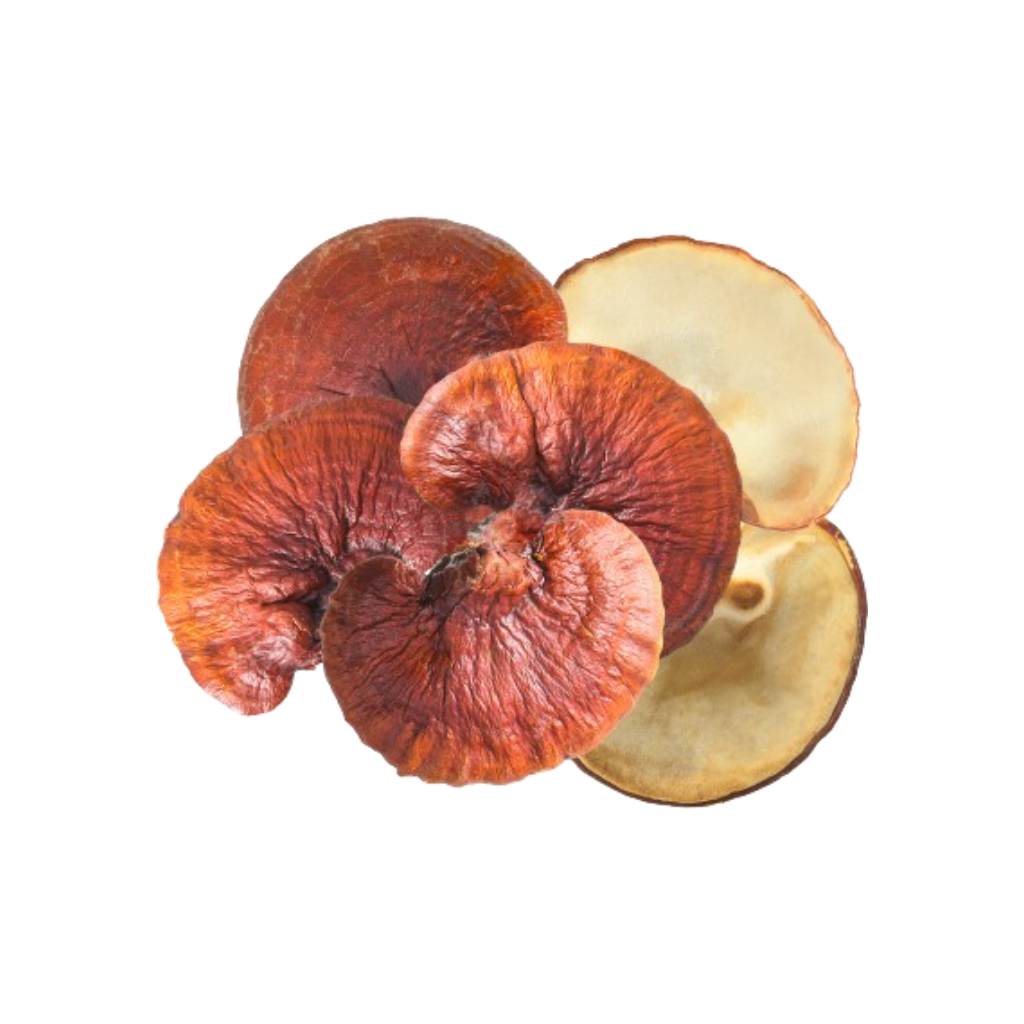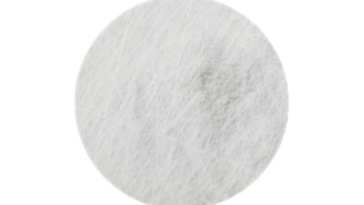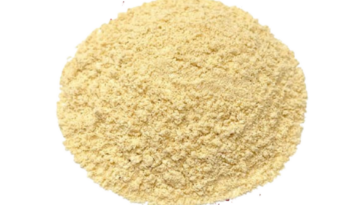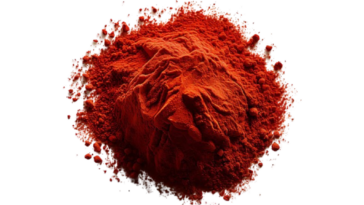Discover the extraordinary benefits of Reishi mushroom (Ganoderma lingzhi (灵芝)), an esteemed cornerstone of traditional Chinese medicine (TCM) with a rich legacy spanning centuries. Belonging to the polypore fungi family, Reishi sets itself apart with its unique pore structure beneath its cap, diverging from the typical gills found in mushrooms. Recognizable for its striking reddish-brown glossy cap and sturdy woody stem, Reishi mushrooms are revered for their myriad health-enhancing properties.
Reishi mushroom, also known as Lingzhi, has garnered attention worldwide for its potent medicinal qualities. Rich in antioxidants, polysaccharides, and triterpenoids, this medicinal mushroom offers a treasure trove of health benefits. From bolstering immune function and combating inflammation to promoting relaxation and supporting cardiovascular health, Reishi mushroom serves as a versatile ally in holistic wellness.
In the realm of natural health, Reishi mushroom stands out as a powerhouse for immune support. Its polysaccharide content stimulates immune cell activity, fortifying the body’s defenses against pathogens and environmental stressors. By modulating immune function, Reishi aids in maintaining balance within the body, promoting resilience and vitality.
In today’s fast-paced world, managing stress is essential for overall well-being. Reishi mushroom offers a natural solution, thanks to its adaptogenic properties. By helping the body adapt to stressors, Reishi promotes a sense of calm and relaxation, supporting mental clarity and emotional equilibrium.
Incorporating Reishi mushroom into your daily regimen is effortless with a variety of convenient forms available, including capsules, powders, and teas. Whether enjoyed as a soothing herbal tea or added to smoothies and culinary creations, Reishi mushroom complements a balanced lifestyle, nurturing your body and mind from within.
As you delve into the world of natural health and traditional medicine, embrace the wisdom of Reishi mushroom. With its centuries-old legacy and modern scientific validation, this remarkable fungi continues to captivate enthusiasts seeking holistic wellness and vitality.
Vitamins & Minerals:
This explanation beautifully outlines the rich nutritional profile of Reishi mushrooms, showcasing how they offer a spectrum of essential vitamins and minerals that support various bodily functions. Let’s delve deeper into the relationship between these nutrients and Reishi mushrooms:
- Thiamine (Vitamin B1): Reishi mushrooms’ significant thiamine content aids in energy production and nerve function, synergizing with the mushroom’s potential benefits for overall vitality.
- Riboflavin (Vitamin B2): Reishi mushrooms’ provision of riboflavin supports metabolic processes and energy production, aligning with the mushroom’s role in promoting overall metabolic health.
- Niacin (Vitamin B3): The presence of niacin in Reishi mushrooms contributes to cellular health and energy production, reinforcing the mushroom’s potential as a holistic health booster.
- Pyridoxine (Vitamin B6): Reishi mushrooms’ supply of vitamin B6 supports metabolism, neurotransmitter synthesis, and immune function, complementing the mushroom’s multifaceted health benefits.
- Cobalamin (Vitamin B12): Though in trace amounts, Reishi mushrooms’ inclusion of vitamin B12 is valuable, especially for individuals following vegetarian or vegan diets, enhancing the mushroom’s appeal as a nutrient-rich dietary option.
- Beta-Carotene (Vitamin A): Reishi mushrooms’ trace amounts of beta-carotene contribute to antioxidant support and overall health, adding another dimension to the mushroom’s potential benefits.
- Ascorbic Acid (Vitamin C): Reishi mushrooms’ provision of vitamin C bolsters their antioxidant properties and supports immune function, enhancing their potential role in promoting overall well-being.
- Vitamin D, K: While Reishi mushrooms may contain small amounts of these vitamins, their contribution to bone health and blood clotting mechanisms underscores the mushroom’s holistic approach to supporting bodily functions.
- Minerals (Calcium, Copper, Iron, Magnesium, Phosphorus, Potassium, Selenium, Zinc): Reishi mushrooms’ diverse mineral content plays crucial roles in various physiological processes, such as bone health, immune function, and enzyme regulation, further highlighting the mushroom’s nutritional value.
Overall, the comprehensive array of vitamins and minerals found in Reishi mushrooms underscores their potential as a valuable dietary addition for promoting overall health and well-being. However, as emphasized, incorporating them into a balanced diet is essential to maximize their benefits.
Probiotic, Prebiotic, or Postbiotic:
Reishi mushroom (Ganoderma lingzhi) is not exactly a probiotic, prebiotic, or postbiotic. Probiotics are live microorganisms that confer health benefits when consumed in adequate amounts. Prebiotics are non-digestible fibers that stimulate the growth or activity of beneficial bacteria in the colon. Postbiotics are metabolic byproducts or components of probiotic bacteria that confer health benefits.
Reishi mushroom, on the other hand, is a type of fungus that is used in traditional medicine for its potential health benefits. While it doesn’t fit neatly into the categories of probiotics, prebiotics, or postbiotics, some research suggests that it may have immunomodulatory effects and could potentially support gut health indirectly. However, it’s not a direct source of live bacteria, fiber, or bacterial metabolites like probiotics, prebiotics, or postbiotics.
Dietary & Health Information:
Reishi mushrooms, also known as Ganoderma lucidum, have a long history of use in traditional Asian medicine for their potential health benefits. Here’s a breakdown of the mentioned health benefits:
- Fortifying the immune system: Reishi mushrooms contain compounds like beta-glucans and polysaccharides which are believed to help modulate the immune system, making it more effective in fighting off infections and diseases.
- Quelling inflammation: Chronic inflammation is linked to various health issues such as heart disease, diabetes, and certain cancers. Reishi mushrooms contain antioxidants and anti-inflammatory compounds that may help reduce inflammation in the body.
- Enhancing sleep quality and relaxation: Reishi mushrooms are often associated with promoting relaxation and improving sleep quality. Some studies suggest that certain compounds in Reishi mushrooms may have calming effects on the nervous system, promoting better sleep and relaxation.
- Contributing to stress and anxiety management: Reishi mushrooms are believed to have adaptogenic properties, meaning they may help the body adapt to stress and maintain balance. By supporting the body’s response to stress, Reishi mushrooms may help reduce feelings of anxiety and promote overall well-being.
It’s important to note that while Reishi mushrooms have been used for centuries in traditional medicine and there is some scientific evidence supporting their potential health benefits, more research is needed to fully understand their mechanisms of action and effectiveness in treating specific conditions. Additionally, individual responses to Reishi mushrooms may vary, so it’s always a good idea to consult with a healthcare professional before adding them to your diet or healthcare regimen, especially if you have any existing health conditions or are taking medications.
Scientific Study:
See National Institutes of Health (NIH) Reishi Mushroom Research →




 No products in the cart.
No products in the cart.